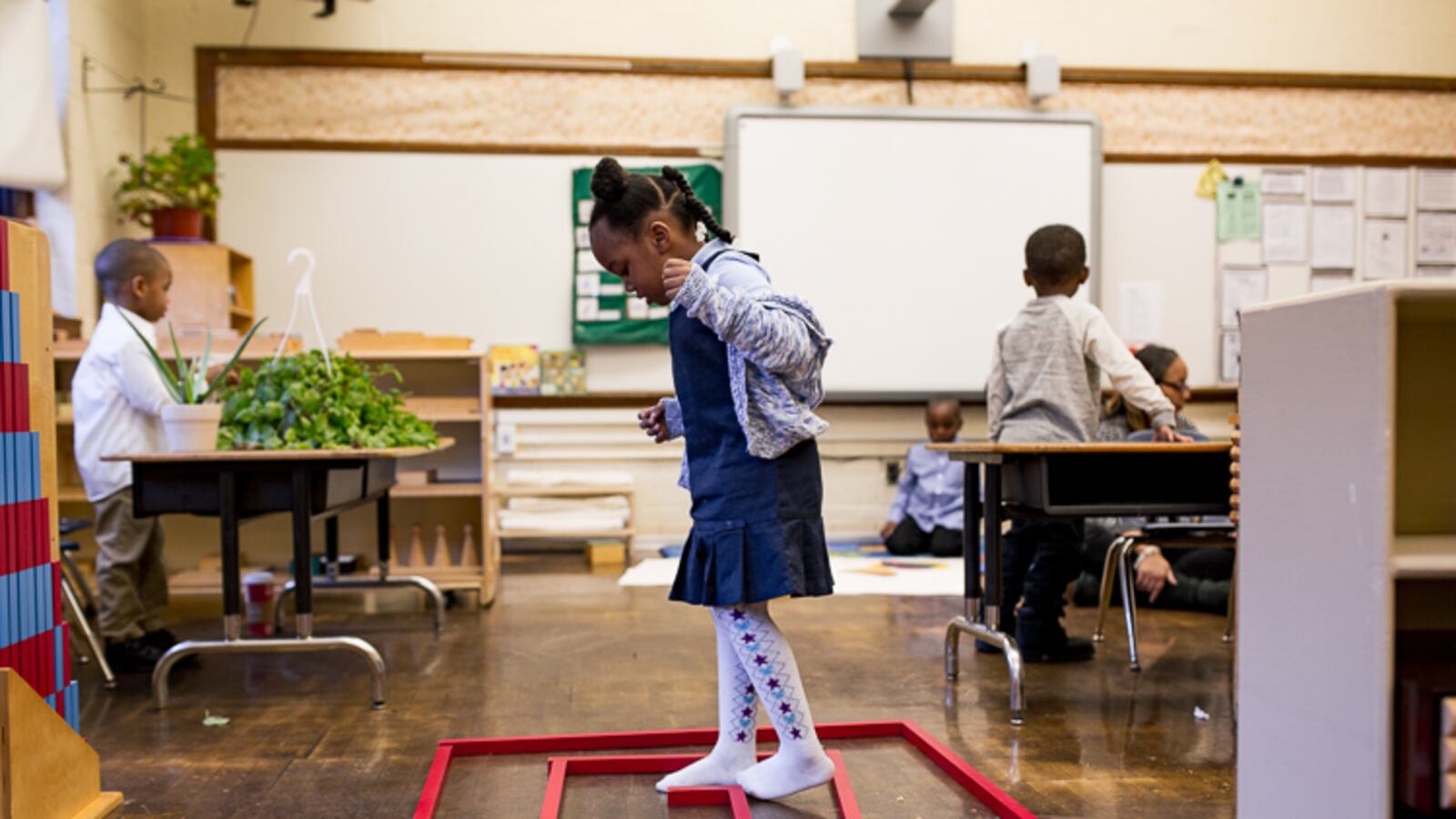When the ambitious Hope Starts Here initiative kicked off a year ago with the news that two major foundations would spend $50 million to improve the lives of Detroit’s youngest children, much of the coverage focused on what would be shiny and new.
The 10-year early childhood “framework” put forward by the Kresge and W.K. Kellogg foundations called for a significant effort to expand preschool offerings, including new schools and funding streams that would make it possible to create more programs for kids.
The effort called for major policy initiatives, such as a universal screening program that would identify young children with disabilities or developmental delays. It called for a citywide testing program that would measure how ready children are to start kindergarten.
But as the two foundations (which also fund Chalkbeat) have begun to dig in over the last year, their early investments have focused primarily on improving existing programs, rather than just creating new ones.
“We’ve learned we have to be able walk and chew gum at the same time,” said Khalilah Burt Gaston, the Michigan program officer for Kellogg, which spent more than half of its $25 million commitment in the last year. “While you’re planning and while you’re listening, you have to be able to think about ongoing community engagement.”
The two foundations are talking with Mayor Mike Duggan as he explores the possibility of universal pre-K, meaning free preschool for all city 4-year-olds. An advocacy network of parents and providers is coming together to push for major policy changes at the city, state, and federal levels.
And there is at least one new facility in the works — an early childhood center on the campus of Marygrove College that will be part of a new Kresge-funded “cradle to career” campus. Plans call for the center, expected to open in 2020, to also help preschools and childcare centers in the neighborhood.
But the first grants by the two foundations under Hope Starts Here have largely focused on schools and programs that already existed.
Tuesday, Kresge plans to announce $2.2 million in grants to nine organizations that are providing arts and cultural programing, mental health services, or fresh and healthy food to preschools around Detroit.
The money, the largest share of the $3.9 million Kresge has put toward Hope Starts Here so far, is to help preschool owners and people who operate child care programs offer better programming. Many providers, whether they charge tuition or get state or federal funding, often struggle to make enough money to provide much more than a basic curriculum, said Wendy Lewis Jackson, the managing director of Kresge’s Detroit program.
Kellogg has put the money it’s spent so far on Hope Starts Here into training preschool teachers, improving facilities, and helping low-income families pay for high quality childcare.
That includes a program that works with preschools to help them improve their standing on a state quality rating system; a scholarship program that gives money to families that don’t meet state or federal requirements for free childcare but need help to afford private tuition; and, a program to renovate 12-14 preschools with what Gaston called “an HGTV-style remodel project.”
Another effort is focused on improving the quality of care offered by in-home providers and family members who are often unlicensed but do the bulk of early child care in communities across the country.
Gaston said the early focus on existing programs emerged from the yearlong listening sessions the two foundations held in 2016 and 2017.
“What we learned listening to parents, to politicians, listening to Lansing, is that people don’t know where quality currently exists in the city and two people may have a different perception about quality in Detroit so we want to make sure that what we currently have is moving the needle toward higher quality,” Gaston said.
Kellogg isn’t just backing preschools. The foundation also announced a $3 million Hope Starts Here grant for the Detroit Public Schools Community District that funds a parent academy, a kindergarten bootcamp and a home visit program that sends educators to children’s homes.
By early next year, the people behind Hope Starts Here plan to launch a website that will track progress on each of its 15 strategies and 26 policy priorities. The online “dashboard” will also track movement on some of the alarming statistics that led to Hope Starts Here in the first place. That includes the city’s alarmingly infant mortality high rate, its high rates of babies with low birth weights and the fact that almost 30,000 young Detroiters have no access to high-quality preschool or child care.
Statistics like that contribute to learning problems later on that partly explain why the vast majority of Detroit third-graders — more than 80 percent — aren’t reading at grade level.
At some point, Hope Starts Here could be managed by a centralized entity. Ideas have included an office connected with city government, or one that would be a freestanding non-profit.
“That’s part of the sorting that needs to occur on this so we get the right kind of structure going forward,” Jackson said, noting that Hope Starts Here is currently run by a “stewardship” board.
“The stewardship board is committed to making sure that there’s a comprehensive and sustainable solutions so they’re’ taking all of that into account,” Jackson said.
As Hope Starts Here enters its next phase, the foundations behind it say the challenge has been staying focused while staring down a massive to-do list in a city where extreme poverty and intensive need makes the work seem urgent.
“The biggest challenge has been the vastness of what we’re trying to accomplish,” Gaston said. “System building work is not sexy. It’s just not but it’s vitally important for us to have a coordinated, high-quality effective system.”

